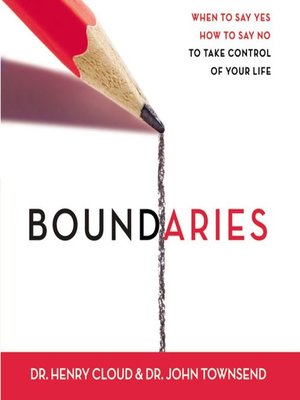
Boundaries do not separate me from the world, they tell the world where I am OK with being contacted. Just as on an airplane, we are told to put our own oxygen mask on first, so in any relationship my primary responsibility is self-care. Only a healthy cell can play its part in a healthy body. The cell wall must be safely intact in order to perform its function. Similarly, boundaries show the world my limits, after I take responsibility for seeing that my own organism’s needs are met.
The most basic element of boundaries is the word no. No explains to others what is not me, as in: No, I am not available to talk after 10pm. No, I cannot drive you to work, tomorrow, I have a doctor’s appt. Or, just “No.” (as a complete sentence).

When Michelangelo was asked how he carved the David, he is said to have responded, I merely chipped away the stone that did not look like the David. My no is like a chisel that clarifies for the outside world what is not me, revealing the true outline of what is me, for the world to see.
In a healthy developmental environment, babies learn to use the word no around age two. But, few of us got everything we needed as a child. If my no was not acknowledged, I may not have come to believe that my own needs matter. If I learned as a child that pleasing others made me feel safe, then I may unconsciously resist asserting my own distinct identity, as separate from those around me.
In setting boundaries, it is vital to notice what is actually mine to influence or control. I claim my body as my own, and my home as my domain. What I allow in my space is up to me. What I offer of my own resources of time and effort is for me to decide. But what is and is not mine is often subject to negotiation. My need to speak may conflict with your need for silence. My need for space may leave you feeling boxed into a corner.

Harmony – an environment where each individual honors the whole, and the whole honors each individual – guides the calibration of healthy boundaries. Trees in a forest know how to navigate each others’ boundaries such that each finds its share of sunlight. When I set my boundaries in a context where I have equal attention on perceiving the boundaries of others, I am most fully empowered to create a healthy personal space that authentically expresses who I am in the world.
Anger is an indication that my boundaries have been violated. We are programmed to use this emotion to clear the space around us. It can also have an incendiary effect on our social fabric and spread in undesirable ways, if expressed unconsciously. The feeling of anger, though, can help me more clearly identify where better boundaries are needed, in order to constructively respond to my environment, rather than react in ways that can result in collateral damage.
Boundaries are the way I wrap the gift of me, so that I can safely show up to experience and contribute to my world.
References

Audiobook narrated by the author. Short and imaginative overview on the topic of Boundaries.

Boundaries
The place between
This and that
The love of a hat
For a head
Or Swiss cheese
For bread
The way a kiss
Seeks the thinnest
Barrier of human skin
Or a garden beckons us
Outside from in
Always drawn to that
Place of change
A mountain range
Plunging into the sea
The movable mystery
Where “you” meets “me”
A fountain giving
Shape to water
A storm cloud heralding
Rain with thunder
The dance melts into
Intimate space
Where the smallest trace
Finds focus and grace
Ever-subtler invitations
Call us into co-creations
Draw a map
From “I” to “we”
The infinite shore
Of an endless sea
– Kermit Goodman
OpenAI ChatGPT Solution

Write a life-coaching blog post on mastering personal boundaries.

Mastering personal boundaries is an essential skill that can greatly improve your life. Personal boundaries are the limits and guidelines that we set for ourselves in terms of what we will and will not accept from others. By setting and enforcing personal boundaries, we can protect our physical and emotional well-being, improve our relationships, and increase our overall sense of self-respect and self-worth. In this blog post, we will explore some tips and strategies for mastering personal boundaries.
- Know your values and priorities: Personal boundaries are rooted in our values and priorities. Before you can set effective boundaries, you need to be clear on what is important to you. Take some time to reflect on your values and priorities. What do you stand for? What are your non-negotiables? Once you have a clear sense of your values and priorities, it will be easier to set boundaries that align with them.
- Communicate your boundaries clearly: Boundaries are only effective if they are communicated clearly. If you don’t communicate your boundaries, others may not know what they are and may inadvertently cross them. It’s important to communicate your boundaries clearly and assertively. Use “I” statements to express your needs and boundaries, rather than blaming or accusing others. For example, instead of saying “you always interrupt me”, try saying “I would appreciate it if you would let me finish speaking before you respond”.
- Be consistent: Setting boundaries is not a one-time event. It’s an ongoing process that requires consistency. If you set a boundary, but then allow it to be crossed repeatedly, it sends a message that your boundary is not important. Be consistent in enforcing your boundaries, even if it means saying “no” or standing up for yourself in uncomfortable situations.
- Practice self-care: Setting and enforcing boundaries can be stressful and emotionally taxing. It’s important to practice self-care to help you stay resilient and maintain your boundaries. Make sure to prioritize activities that help you relax and recharge, such as exercise, meditation, or spending time with loved ones.
- Seek support: Mastering personal boundaries can be challenging, especially if you have a history of not setting boundaries. It can be helpful to seek support from a therapist, coach, or trusted friend or family member. They can provide guidance, feedback, and encouragement as you work to develop and maintain healthy boundaries.
In conclusion, mastering personal boundaries is an important life skill that can have a profound impact on your physical and emotional well-being, as well as your relationships. By knowing your values and priorities, communicating your boundaries clearly, being consistent, practicing self-care, and seeking support, you can develop and maintain healthy boundaries that support your overall growth and well-being.

Leave a Reply